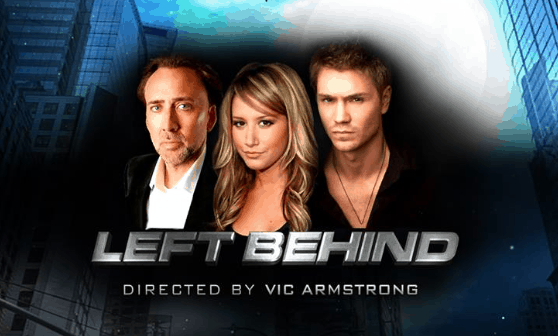
Here’s a scene that plays out regularly in churches around the world:
There will be a worship band. Maybe a video or a short skit. People will go on stage to use their God-given talents to encourage the congregation. After the service is over, these people are thanked and congratulated for doing well. And upon receiving this congratulations, they will rush to deflect it.
“Oh,” they’ll say demurely. “It’s not me.”
Or perhaps, “it was really nothing.”
Now, all this comes from a good place. An honest desire to deflect praise and make sure we’re being humble. But as this plays out again and again—not just in our church services, but in our jobs, families and other relationships, you can see how the idea of humility is slowly turning into something closer to self-loathing.
We have a weird relationship with humility.
Sure, we know it’s a virtue. “Pride goes before destruction” (Proverbs 16:18). “God opposes the proud, but gives grace to the humble” (James 4:6). Check. But the thought of humility rarely inspires the rapture that love or joy does. Humility is one of the “hard virtues,” the ones we have to practice whether we like it or not.
Maybe that’s because we don’t know what humility is.
The word has picked up a bad rap over the years. Many people associate it with humiliation, self-loathing, shame and guilt. To be humbled is to be knocked down a peg. Eating humble pie is something no one wants to do.
But there’s a different way to think about humility—and it can bear all kinds of fruit within us. My favorite definition comes from the monastery where I’m an associate: “Humility is not self-denigration; it is honest appraisal. We have gifts and deficiencies, as does everyone else.” In other words, humility is a crystal-clear view of who I am and my place in the universe.
So, who am I? And who are you? I start with two basic claims that apply to all of us:
1. I’m Only One Person
The truth of this one is self-evident: A look in the mirror is all you need. But maybe it’s so self-evident that we don’t consider what it means.
For one thing, it gets us out of the “me” trap. It’s hard to think of ourselves as the center of the universe when we realize we’re one person among billions. When this truth becomes part of our walk with God—something God cultivates in our souls—our focus naturally turns outward. After all, why spend all our time thinking about ourselves when there are so many other people to think about? Moreover, we start to see those other people in an entirely new way, with as much dignity and as many strengths and limitations as we have. Our seeing them anew opens us to treat them as equals, with compassion.
On a similar note, the fact that I’m only one person among billions means I have only one perspective among billions—and that eases me back from the certainty of my opinions. Can I be certain that my interpretation of this gospel passage or that psalm is right and my neighbor’s is wrong? Could her opinions on marriage, health care reform or the George Zimmerman case be more valid than mine? By easing us back from our certainty, “I’m only one person” opens us to others’ ideas and inspires us to reach across divides to hear them. (This could also be a giant first step to dialing back the hostility and defensiveness that often characterize hot-button issues in the Church.)
Finally, good news for the over-responsible: “I’m only one person” liberates us from taking on too much. I know this temptation all too well. If I am not shouldering 90 percent of a group task, I assume I am slacking. It has taken me decades to realize that, hey, I’m only one person, which means there are others to shoulder the load, and I don’t need to do everything. Once we learn what we can and cannot do, there is justification for saying no to things that don’t fit with our skills, schedule or purpose, and our lives gain more balance as a result.
But taking “I’m only one person” as the whole truth can be profoundly corrosive. If I have no power to effect change or create a better world, why bother trying? Why vote, for instance, when one vote rarely sways the outcome? It’s a very short step from there to despair. Enter:
2. I Am One Person
This teaches me something different: that I have exactly one person’s gifts, talents and limitations, and I can contribute those to make exactly one person’s impact. In other words, I can’t do everything, but I can do something.
And that opens our eyes to the power of we.
Say I want to change the law on animal cruelty in my state. As a writer, I can do my one person’s bit: write op-eds, letters to the editor, emails to elected officials. Sure, this could make some difference. Will it change the law all by itself? Not likely.
Now imagine I team up with some other “one people.” Maybe there’s a community organizer who excels at rallying volunteers to the cause. Perhaps there’s a former congressional aide who can draft bills in her sleep. We put our money together and hire a lobbyist, a measure that my limited income couldn’t possibly cover alone.
All of a sudden, with each of us doing what he does best, we have impact. Each person contributes her one-person’s gifts. They combine to wield far more impact than the sum of their parts. Now maybe we can change the world.
The Hand Cannot Say to the Eye…
If this sounds familiar, it should: it’s the Church as body of Christ all over again. When you realize you’re only an eye, or a hand or a hair follicle, you can see the folly of thinking it’s all about you. On the other hand, when you realize that you are an eye, or a hand or a hair follicle, your potential contribution to the body becomes clear.
Who are you? What one person’s strengths and gifts can you contribute? Start with the most basic facts about yourself and go from there. It’s a path to genuine humility that unleashes our best and deepest selves on the world.






















